Assistant Editor's Note: The following interview is with Trish Sare, the Founder and Director of BikeHike Adventures, a longtime ATTA Member and passionate believer in authentic experiences. In this interview we unveil the challenges addressed by a small tour operator in the changing dynamic of the finicky adventure traveler combined with big-business competition. Through her story we hope to begin a dialogue as we head towards the Adventure Travel World Summit in Lucerne where through networking and learning we addresses these types of business challenges.
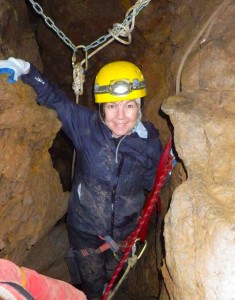
What two things do you intend for all travelers to take away from your tours?
We want our travelers to feel that they have truly experienced the countries that they have visited because they have engaged first hand with the local people, ate the local foods, and traveled into the remote corners where tourists don't go. We want them to see that the type of travel that we do financially benefits the local people directly and educates them that by keeping forests intact and not poaching wildlife they will have sustainable jobs and futures. We also want our travelers to feel inspired by their accomplishments of exploring these countries on their own sweat and steam.
You say BikeHike is a small company. Do you have plans to grow?
We're certainly not against the idea, but our priority is to continue to build the quality of tours. Our years of client satisfaction is a priceless asset that we will never sacrifice for industry growth.
What do you think of the current environment of large companies/consortiums buying up smaller companies like BikeHike - companies that have earned the trust & respect of their clients? What are the pros and cons?
Mergers and acquisitions are an unavoidable part of business. The importance resides in how they affect the experiences passed along to the traveler.
On the one hand, larger companies can provide the arms and legs to make a small adventure company reach its full potential as an industry leader. In doing so, it is a popular exit strategy for small company owners looking to move on. If the fit is right and both parties share a common direction, it is a perfectly respectable avenue for a smaller company to entertain.
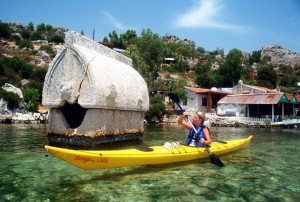
On the other hand, once a company like BikeHike is sold to a larger entity, the flame of the founder is often lost, and so is the fabric and personality that came with it. Smaller companies are most often born from a genuine passion for active travel. This is evident in the personalized service and unwavering commitment to responsible tourism. More often, the acquiring company is all about dollars and cents, and this can be a slippery slope.
As bigger companies get larger, their volumes increase allowing them to maintain lower pricing with higher margins. This undercuts the smaller companies, questioning the sustainability of the little guy. With less competing companies in the adventure travel industry, fewer options exist for global travellers. Reversing the damage is sometimes impossible.
P.S.: Just a note on this one. I just got off the phone with a potential client who thanked me for getting back to him instantly after his email had come in about a trip to Vietnam and Cambodia that they are interested in reserving. He and his wife have traveled the world with many industry leaders, Abercombie and Kent, Backroads, etc. He just told me that he's decided to only book with smaller companies now because the level of customer service and personalization far exceeds the bigger companies. Now, wasn't that right on queue?
What's the single most challenging issue BikeHike faces each year, month, day - what is it that keeps you up at night? (And, we don't mean a phone call about a stranded group - we're talking about the real, deep issues.)
BikeHike's goal is to introduce active travellers to authentic cultures around the world. Of course, there is a thin line between healthy cultural interaction and the detrimental cultural erosion that is becoming synonymous with mainstream tourism.
What "keeps us up at night" is the task of balancing what we believe travel should be with the increasing materialistic requests we receive from travellers. More and more, clients are asking for western-run upscale accommodation and dining arrangements. Our tours are designed to be just the opposite, where travellers stay in family run hotels and dine with the locals. The shifting demand towards westernized global tourism isn't just a problem for BikeHike, it's a problem for the heart and soul of developing countries worldwide.
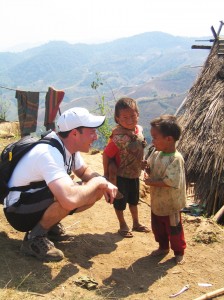
How do you define a "local" tour experience?
All of our guides and drivers are all locals. Some of them are foreign, but have been in those countries for many years and are married to locals, with local children of their own. We stay in family-run hotels, and some trips have homestays. We dine in local restaurants and sometimes in family homes. We often get invited into the homes of locals for tea where our travellers have the chance to interact with the families and exchange information about each other's countries. In Turkey, we have a lunch in a local home with three generations of Turkish women. They tell us how life has changed for them with each generation. Because we travel by bikes and foot, we have many encounters with the locals along the way. For example, the Vietnamese are fascinated by foreign cyclists and often ride up alongside us for portions of our journey. We've also donated to many schools on our trips, and the delivery of those donations of desks, books, and school supplies always happen in the midst of a trip so that our travellers can experience the joy of the children and the teachers.
What are some of the most memorable experiences you've shared with clients?
Having tea with a Maasi woman and learning about her life. She is the 12th wife of her 75-year-old husband, and she's 16. We traded necklaces and have a memory of one another for years to come.Traveling through the Taurus Mountains in Turkey and encountering a woman and her disabled son who lost their goat and walked for four days to find him. They had no idea which direction the lost goat traveled so just walked until they found him. We were in a vehicle and gave them a lift back to their nomadic tent. It really gave our travelers a sense of how easy their lives are back home.
Being guests at local and very traditional weddings in Costa Rica, Turkey, India, and Thailand.
____________________________________________________________________________________
Additional background on BikeHike's history and products
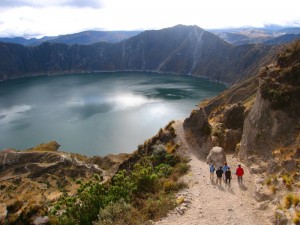
How did BikeHike Adventures begin?
At the age of 17, I lost my mother to cancer. Before she died she told me to go and explore the world, as one never knows what tomorrow has in store for us. She never had the chance. So at 20, I somehow mustered up the strength to set off on a five-year solo journey working my way around the world. For two of those years I lived in Thailand on a small island with a local family. The island was untouched by tourism and I was one of just two foreigners on the island. There I lived as a Thai, learning about their culture and customs. They had very little, lived off the land, but had a very strong sense of community and were very happy. I returned to Canada with angst about the materialistic mentalities of my society and decided to try to set up a company that would give others an opportunity to see the world the way I had. I wanted them to have the chance develop authentic connections with the local people and learn about their customs while preserving their cultures.
There were many steps I needed before I got there however. I first found work as a Costa Rican based guide for a tour operator, where I learned the ropes of what happens on the ground. I was also very active and adventurous, seeking out biking, hiking, rafting, caving, trips in my spare time. They sent me all over Central and South America leading trips in other destinations.
Afterwards, I returned to Canada and found work with another tour company, Worldwide Adventures. It was here that I learned what went on in the office, putting all of the pieces of the puzzle together from an operations perspective. I did this for one year and then decided I was ready to go out on my own combining culture and activity into one adventure. I approached another tour operator, Canadian Himalayan Adventures, and asked if I could start a company under their license and infrastructure. They agreed and with only $1,000 in my pocket, I set up one tour in Costa Rica just to see if it would work. I made a flyer and advertised free slide presentations in fitness clubs; there was no Internet back then. My first tour sold out and that gave me the inspiration to keep going. That was 18 years ago.
Tell us about a Typical BikeHike Tour.
We specialize in multi-sport adventures around the world, mostly the developing world. On each tour there is a very strong focus on cultural encounters with the local people and seeing the country from a local's perspective, not a tourist perspective. A typical trip has a good mix of activities from biking, hiking, rafting, sea kayaking, horseback riding, standup paddle boarding, elephant and camel riding, etc. There are also some trips that are much heavier on one activity, generally biking or hiking. We stay in cozy three star hotels, manors, haciendas, etc., that are mostly family-run establishments. Some of our trips have nights of camping under the stars. When there is camping, it is considered luxury camping, with dining tents, cooks, and camp staff to make the experience very comfortable for our travellers. We supply all of the equipment, bikes, kayaks, etc. making the trips hassle free for our travellers. On most trips we have a support vehicle following the group as well. All of our guides are locals who know their countries intimately and are passionate about adventure sports. Many of our itineraries include a home cooked meal in a family home, a visit to a school, and oftentimes our guides bring us home to meet their families. Lastly, we have trips rated from easy-moderate-challenging and strenuous.
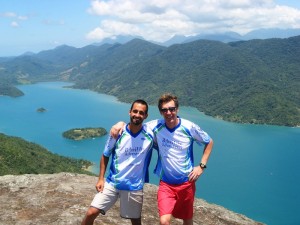
And typically, what kind of travellers are attracted to BikeHike Adventures?
We attract the 'bucketlister' and 'cultural explorer' types on BikeHike tours. Generally they are North American, from Canada and the U.S., although we do also get people from every other corner of the world as well. The average age is between 30's and 50's but there are many older and younger ones as well. We've seen an increase in our median age change in the last few years. We attract a lot of solos because we don't charge a single supplement fee and we also get a lot of families and groups of friends looking to customize their vacations. Our travelers want to be active and able to challenge themselves by day, but also want to sleep in comfortable accommodations and eat good food.
How are BikeHike tours different?
BikeHike is a small company, and with that, we give a great deal of personalized attention to every single traveler who books. It is a comment that we hear from our travelers frequently, that they love the personalized service that they receive. We have developed a global BikeHike family of very dedicated travelers who have become our friends, and this is one of the things that gives us the inspiration to keep going year after year.
